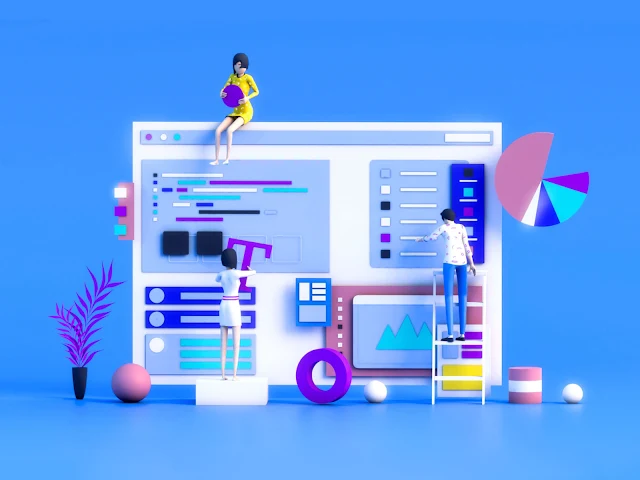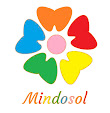What Is Web3.0 Technology?
It's anticipated that
Web3.0 will be-
Open-Open- source
software will be used to make content platforms.
Unsure-Everyone will
use Zero Trust, and network protection will reach the edge.
Distributed-
Interaction between bias, druggies, and services will be possible without a
centralized authority's blessing.
Blockchain technology
will make it possible for druggies to communicate directly with one another
throughout the coming stage of the internet. Druggies will communicate by
getting a part of a Decentralized Autonomous Organization(DAO), a group that's
run and possessed by its community.
Data belonging to the
stoner will be defended via a network of openly available smart contracts.
These contracts will be stored in a blockchain, which a decentralized network
that bumps will control.
The following are farther Web 3 forecasts
All deals will be tracked on a distributed tally that uses
blockchain technology, and data transfers will be decentralized.
Smart contracts that
are open to everyone will relieve people of the need to calculate on a
centralized association(like a bank) to maintain data integrity.
The entertainment sector will significantly increase its profit from the metaverse.
Blockchain technology will make it possible for consumers to incontinent produce digital goods non-fungible commemorative (NFTs), which will cover intellectual property and tête-à-tête identifiable information (PII).
Druggies' data will
be suitable to be served from.
What Is Web3.0 Technology?
Web 3.0 is a term used to describe the next generation of the World Wide Web, where the web is no longer just a destination, but a platform for creating, sharing, and interacting with data. It is an intelligent, connected, and interactive web that uses machine learning and artificial intelligence to provide users with more personalized and relevant content. Web 3.0 technology is expected to make the web more accessible and secure, and enable more efficient data sharing and collaboration.What Is Web3.0?
Tim Berners-Lee, an
inventor who created the WWW or World Wide Web, firstly appertained to Web3.0
as the Semantic Web and saw an intelligent, tone-sufficient, and open Internet
that employed AI and machine literacy to serve as a" global brain" and
interpret content conceptually and contextually.
Due to technological
constraints, similar to how precious and grueling it's to restate mortal
language into machine accessible language, this idealized interpretation did
not relatively work out.
Following is a list
of typical Web3.0 traits
The semantic web is a
development in online technology that enables people to produce, partake, and
connect material through hunt and analysis. Rather of using figures and
keywords, it's centered on word understanding.
It uses machine
literacy and artificial intelligence. The final result is the conformation of
Web3.0 to grow smarter and further open to stoner demands. However, the result is
a computer that uses NLP, If these ideas are paired with Natural Language
Processing(NLP).
It illustrates how
the Internet of effects connects colorful bias and operations(IoT). This
procedure is made possible by semantic metadata, allowing for the effective
exploitation of all available data. In addition, anyone can pierce the internet
from anywhere at any time without a computer or other smart device.
It gives druggies a choice to interact in public or in
private without exposing them to troubles through a third party,
furnishing" unsure" data.
3- D plates are used.
In fact, this is formerly apparent ecommerce, virtual tenures, and computer
gaming.
It makes
participation easier without taking concurrence from a ruling reality. It's
without authorization.
It's applicable to
Metaverses A measureless, virtual terrain that's 3D-
rendered
Blockchain videotape
games cleave to the NFTs' ideals by enabling druggies to retain factual power
of in- game coffers.
Digital structure and
sequestration Zero-knowledge attestations and further secure particular data
are used in this operation.
Financial
decentralization. Peer- to- peer digital fiscal deals, smart contracts, and
cryptocurrencies are exemplifications of this use.
Autonomous decentralized associations. Online communities
are possessed by the community.
What Is Web2.0?
Web 2.0 is the term used to describe a second generation of the World Wide Web that is focused on the ability for people to collaborate and share information online. It is characterized by services such as social networking sites, wikis, communication tools, and other web-based communities and hosting services. Web 2.0 also includes technologies such as Ajax and web services which allow for a more interactive and engaging experience on the web.
If Web1.0 comported
of a small group of individualizes producing material for a bigger
followership, Web2.0 consists of numerous individualizes producing indeed more
happy for an expanding followership. Web2.0 places further emphasis on
participation and donation than Web1.0 did on reading.
Stoner-Generated
Content( UGC), usability, commerce, and enhanced connectivity with other
systems and bias are the main focuses of this Internet form. In Web2.0, the
experience of the stoner is everything. As a result, this Web form was in
charge of establishing social media, collaborations, and communities. Web2.0 is
thus regarded as the dominant system of web commerce for the maturity of
druggies at the moment's world.
Web2.0 is described
as" the participative social Web," whereas Web1.0 was appertained to
as" the read-only Web." With the objectification of web Cybersource
technologies like JavaScript fabrics, Web2.0 is a bettered and expanded
interpretation of its precursor.
The typical traits of
Web2.0 are broken down as follows
It includes dynamic
content that reacts to stoner input
It uses developed
operation programming interfaces(API)
It encourages tone-use and allows forms of commerce like
podcasting, social media, tagging, blogging, opening, curating with RSS, social
networking, and web content voting
It offers free
information sorting, allowing druggies to recoup and classify data inclusively
It employs advanced
operation programming interfaces(API)
It uses advanced
information; it's used by society as a whole and isn't just specific
communities.
Is Web3.0 available now?
important of Web3.0 is formerly then, since blockchain and its operations are decreasingly getting a reality. Still, it took over 10 times to transition from Web1.0 to Web2.0, and utmost spectators anticipate it to take just as long, if not longer, to completely apply and reshape the web into Web3.0. Some of the Web.
Is Web3.0 the future?
What Is Web3.0? The Future of the World Wide Web
Web3.0 is the newest generation of the World Wide Web. Unlike former generations, it's characterized by decentralization, increased consumer utility, and openness. Consequently, it has the implicit to be as transformative as Web2.0 has been.
What's the current state of Web3?
Despite all the progress in blockchain, numerous services in web3 structure are still too centralized. Centralization increases the threat of security breaches as well as service uptime — consolidated services are more sensitive to tackle and software failure.
Is Web3 the future of the internet?
Web 3 is a term used to describe the coming generation of the internet, which is erected on blockchain technology. It's still in its early stages of development, but it has the implicit to revise the way we interact with the internet.








No comments:
Post a Comment
Hi,
Thanks for dropping us a line! Your Comment has been received and we onto it :)
Just so we don't leave you hanging, we want to let you know that during business hours (Monday-Friday: 6PM-230AM IST), we strive to respond to all comments within 10 hours. Outside these business hours, well respond as quickly as possible.
Thanks again!